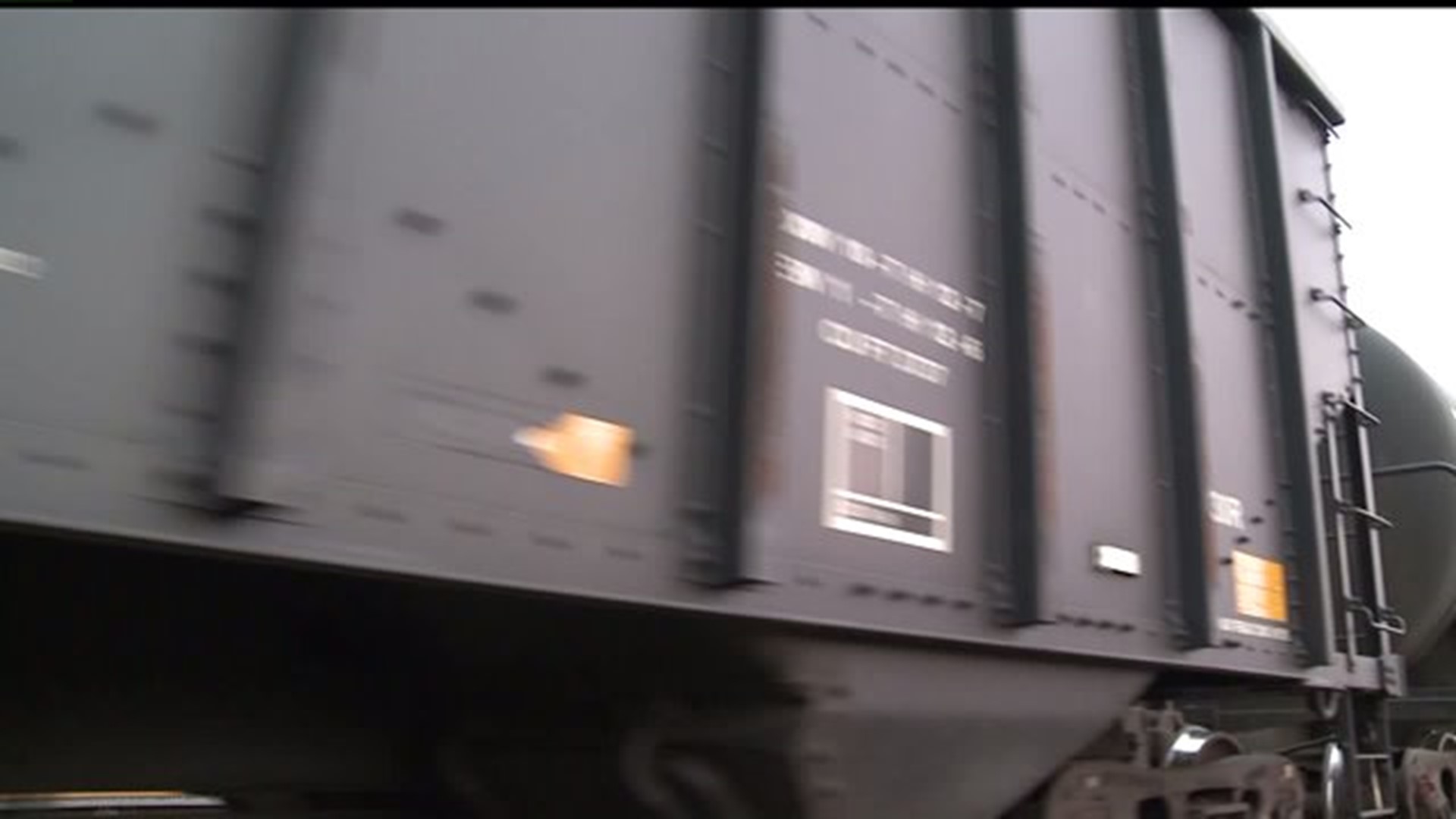Trains carrying Bakken crude oil are often referred to as "bomb trains" because the oil is thought to be the most volatile oil in existence and because of how extensive a train derailment can be. The oil burns hotter than any other known type.
Trains carrying the oil that exploded and burned in West Virginia travel through Central PA everyday.
"One after another, after another, after another and there are varying levels of oil that come through... varying kinds but we know that 25 of these trains come through the city every week," said Brad Koplinski, a Harrisburg city councilman.
More than 16,000 people live in Harrisburg's train evacuation zone. If you live in Shipoke, you're in the heart of it. But, even more frightening Pinnacle Hospital is just a few feet away from train tracks... meaning if an accident were to happen, the hospital would have to be evacuated.
"Heaven forbid anything happen in those areas - It's the most populated area with train tracks going through it," said Koplinski.
Over the past four months Harrisburg City Council as well as the Governor of Pennsylvania have passed legislation urging Congress to act.
The Department of Transportation recently passed a new set of rules restricting the rate of speed which trains carrying crude oil travel and requiring an electronic braking system. But perhaps the most anticipated, the current train cars must be phased out and replaced with newer cars by 2020, which are thought to be safer.
But, are they really safer? The newer tanker cars are the same ones that derailed in West Virginia causing a massive explosion and fire that burned for hours.
Rail Transportation Engineering Instructor Bryan Schlake from Penn State Altoona worked as an engineer for Norfolk Sourthern, the railroad system on which Bakken crude oil travels.
"There's really not a silver bullet to answer this question and solve this problem. There's a lot of different engineering solutions... There's operational solutions there's policy decisions that can be made to try to reduce the risk," said Schlake.
Schlake says the newer train cars are safer. But, will they prevent an explosion? Probably not.
"The fact that they have ruptured goes to the fact that well it's not fool proof. There are some concerns with it," said Koplinski.
Just to put it in perspective, if an accident were to happen on the West Shore, the Harrisburg Fire Chief says he would just have to let the fire burn. The environmental impacts from extinguishing the fire are greater than the actual burn itself.
Jamison Colburn is an expert in environmental law for Penn State. He says the new rules established by the Department of Transportation are 5 months overdue.
"It's been unfortunately carried out behind closed doors and in language that is innpenatrable. It's very esoteric and the public can't really understand the trade-offs," said Colburn.
Colburn says these new set of rules aren't a win-win. The oil and railroad companies will likely see their profits decline in order to better protect the public. And on top of that, Colburn predicts the rules will be challenged.
"It's almost certain there will be a lawsuit after this rule making. (An expensive one?) An expensive one," said Colburn.

